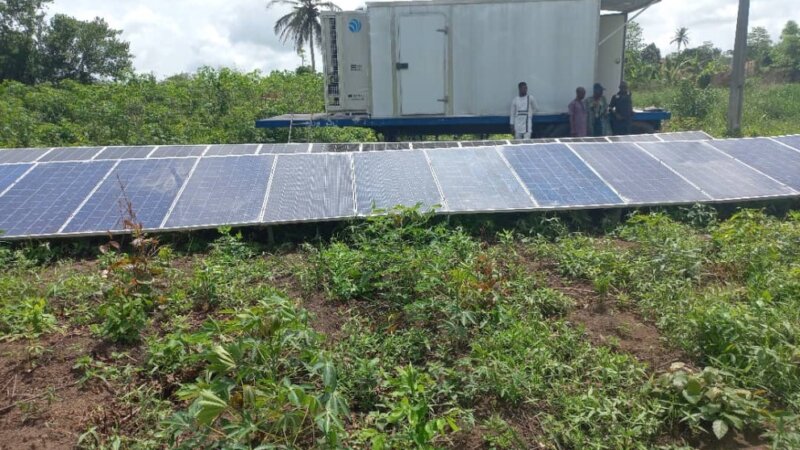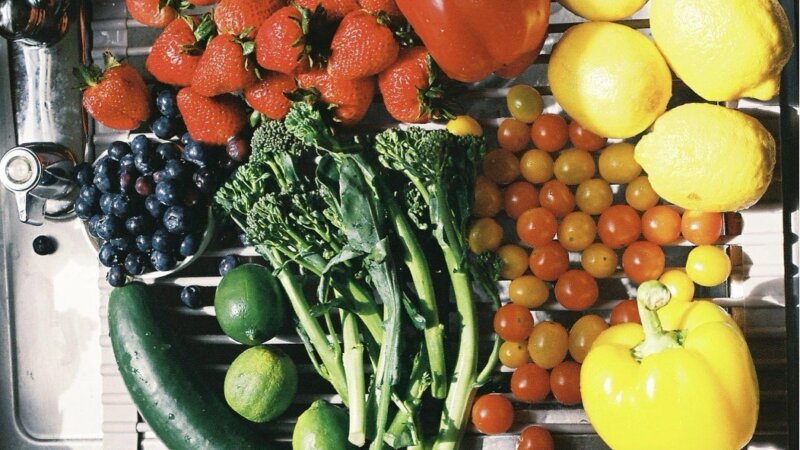Pathways need partnerships
Transforming food systems can't wait, and responding requires coordinated, purposeful action. In 2024, 295.3 million people faced high levels of acute food insecurity – an increase of almost 5 percent, or 13.7 million people, compared to 2023. This marks the sixth consecutive annual increase¹. At the same time, 783 million people worldwide face chronic hunger. Together with our partners across the Netherlands and beyond, we at the Netherlands Food Partnership aim to help reverse these trends and contribute to tangible progress on SDG2 and interconnected sustainable development priorities.
The UNFSS+4 Stocktake provides the opportunity to boost that coordinated action. It is the moment for the international community – public and private sector, farmers, consumers, civil society organisations, research institutions – to assess the progress made since the UN Food Systems Summit in 2021. Many countries are already implementing their food systems pathways, and will share their success stories, lessons, and challenges. The Stocktake creates the platform for mutual learning and coordination, tracking and renewing commitment, unlocking finance and increasing investments. As systemic pressures worsen vulnerabilities in our food systems, transformation is one of the most urgent paths forward.
NFP's calls to action for UNFSS+4, based on insights from our partnerships:
Achieving SDG2 requires all stakeholders to commit and contribute to sustainable, resilient food system(s) at the local, national and global level. Food systems action needs to integrate the UNFSS agenda with other (regional) agendas such as the new phase of CAADP, the climate action agenda, the Convention on Biodiversity, etc
Systemic change requires systemic solutions; working in silos is not an option. In the lead-up to UNFSS+4, we already see food systems transformation taking shape in diverse ways across the globe.
- The Stocktake must help connect these diverse efforts, while recognising that the plurality of values and approaches are a huge asset. and strengthen collective capacity, supporting the people and organisations who are turning ambition into action. To be effective, commitments at the Stocktake must move beyond treating symptoms and address the food system as a whole². Building resilience to climate change, for example, demands a coordinated approach that integrates adaptation and mitigation with efforts to protect biodiversity, safeguard water resources, and restore healthy soils.
Multistakeholder collaboration is essential for the effective implementation of national pathways. Every actor - from farmers and value chain players to consumers, civil society, financial institutions, governments, researchers, and especially youth, women, and Indigenous groups - has a distinct and vital role to play.
- While working in partnership can be complex, it is precisely this collective effort that holds the power to overcome systemic bottlenecks no single actor can resolve alone. When well-designed and inclusively managed, multistakeholder partnerships can significantly accelerate the implementation of national food systems pathways. Partners in our network are eager to share their experiences and lessons during the Stocktake and beyond, and to develop new partnerships whenever needed.
Sustainable finance for the food system transition is urgently needed. Both public and private sectors have a vital role to play in investing in food systems transitions.
- While international development funding is under pressure, there are several promising solutions to allocate more funds to food systems transitions, particularly in low- and middle-income countries. For example, a greater share of climate finance could be earmarked for sustainable food systems, which currently receive just 4.3%. At the same time, private sector investment for the transition can be scaled and rendered more impactful by scaling sustainable investment, reforming subsidies, leveraging private capital, and ensuring inclusive access.
Countries are in the lead for their national food systems pathways. International cooperation and support should respond to their needs and align with national agendas.
- Regional and global partners can partner with countries that need support, following a context-specific view starting from the existing knowledge, opportunities and needs in partner countries, especially those of the most marginalised and vulnerable groups. International support to particular countries can draw on shared experiences; those emerging from UNFSS+4, the thematic coalitions formed at UNFSS 2021, and the wealth of insights from research and knowledge institutions such as CGIAR, FAO, and WHO, as well as in the private sector and civil society.
The Netherlands can use the UNFSS+4 as a valuable opportunity to learn from the diverse experiences of food systems transformation unfolding across the globe. As the Netherlands looks to shape its food future, both domestically and as a committed international partner, our governmental delegation to UNFSS+4 as well as the non-state actors participating in the Stocktake can use the insights into how countries are exploring and addressing the interconnected challenges of trade, agriculture, health, and sustainability.
Three specific opportunities to build on existing partnerships and accelerate systemic change in countries (from our partnership portfolio):
Catalyse the changes needed to break the cycle of hunger in protracted crises. This demands a fundamental shift toward evidence-based, locally led, multi-sectoral transformation centred on resilience, conflict-sensitivity, and inclusive governance. Backed by bold investment, principled leadership, and shared accountability.
Improve (formal and informal) seed systems to strengthen a/o. the vegetable sector. This can be achieved by investing more in partnerships between public and private parties as well as local entrepreneurs and farmers.
Mobilise global commitment to recognise the value of food beyond the market price – accounting for health, environmental, and social impacts – to drive transparent, just, and sustainable food systems transformation.
Strengthen connections between food systems and biodiversity actions and actors. Build shared understanding, agency, and capacity across sectors and scales to act on vital biodiversity–food system linkages. These connections unlock powerful opportunities for food and nutrition security and a thriving planet.
¹ Global Report on Food Crises 2025.
² See also the NFP expert dialogue with Corinna Hawkes (FAO) on food system transformation in practice
Author

Nicole Metz
Senior Knowledge Broker - Netherlands Food Partnership




